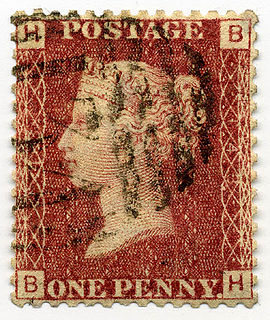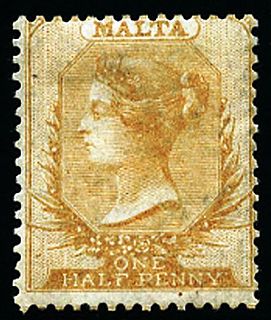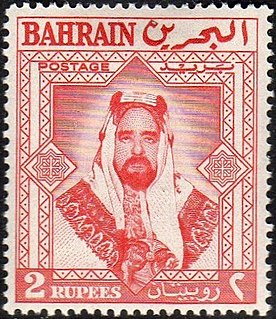
The British Philatelic Trust was established in 1981 by the British Post Office. [1] The governing deed was executed on 26 September 1983. [2] The Trust is independent and was registered as an educational charity on 21 November 1983. [2] [3]

The British Philatelic Trust was established in 1981 by the British Post Office. [1] The governing deed was executed on 26 September 1983. [2] The Trust is independent and was registered as an educational charity on 21 November 1983. [2] [3]
The trust was created with the surplus funds raised by the Royal Mail for the London 1980 International Stamp Exhibition. Three miniature sheets were issued which were intended to raise funds for the exhibition but in fact they raised far more than was expected and the excess formed the trust's original endowment. This was supplemented with funds raised for Stamp World London 1990 and additional donations by the Royal Mail and others since.
The trust's objective is the study, research and dissemination of knowledge of philately. [1]
The trust has a board of trustees including a chairman and representatives from the Royal Mail. The board meets four times per annum. The chairman for many years was Francis Kiddle. [4]
The trust had net assets of £3,555,186 as at 5 April 2008 and is exempt from UK tax. [2]

Philately is the study of postage stamps and postal history. It also refers to the collection, appreciation and research activities on stamps and other philatelic products. Philately involves more than just stamp collecting or the study of postage; it is possible to be a philatelist without owning any stamps. For instance, the stamps being studied may be very rare or reside only in museums.

Postage stamps and postal history of Great Britain surveys postal history from the United Kingdom and the postage stamps issued by that country and its various historical territories until the present day.

The Stanley Gibbons Group plc is a company quoted on the London Stock Exchange specialising in the retailing of collectable postage stamps and similar products. The group is incorporated in London. The company is a major stamp dealer and philatelic publisher. The company's philatelic subsidiary, Stanley Gibbons Limited, has a royal warrant of appointment from Queen Elizabeth II.

The British post offices in Morocco, also known as the "Morocco Agencies", were a system of post offices operated by Gibraltar and later the United Kingdom in Morocco.

A Presentation Pack typically contains a full set of a new stamp issue, produced for philatelists and stamp collectors. It normally comprises a folded card containing detailed notes about the stamps, a card with clear strips for holding the actual stamps, all held within a clear sleeve. The packs are usually sold at a price a little above the stamps' face value.

The postal history of Malta began in the early modern period, when pre-adhesive mail was delivered to foreign destinations by privately owned ships for a fee. The earliest known letter sent from Malta during the rule of the Order of St John is dated 1532. The first formal postal service on the islands was established by the Order in 1708, with the post office being located at the Casa del Commun Tesoro in Valletta. The first postal markings on mail appeared later on in the 18th century.

David Feldman BA, BBS, RDP(I) is a professional philatelist, auctioneer and author. He held his first stamp auction in 1967. Feldman is Honorary Chairman of David Feldman SA, a Geneva-based auction company, through which he attained record prices for some of the world's most famous postage stamps. In 1993, Feldman auctioned the "Bordeaux Cover", which comprised the 1847 1d Orange-red and the 2d Deep Blue Mauritius "Post Office" stamps, which brought 6,175,000 Swiss francs including all commissions, at that time the highest price ever paid for any philatelic item. He also sold the unique 1855 Sweden Treskilling Yellow stamp at auction in 1996, which at the time was the highest price ever paid for a single stamp, eclipsed in 2014 by the sale of the British Guiana 1c magenta.

Sir Edward Denny Bacon, KCVO was a British philatelist who helped with the enlargement and mounting of collections possessed by rich collectors of his time and became the curator of the Royal Philatelic Collection between 1913 and 1938.
Michael Richard Sefi LVO is a British philatelist and was the Keeper of the Royal Philatelic Collection from 1 January 2003
Percival Stuart Bryce Rossiter was a renowned British philatelist and postal historian who wrote extensively about British postal history and postage stamps of British colonies in Africa and was involved in numerous philatelic institutions. In his Will he created The Stuart Rossiter Trust which has become a leading publisher of books on postal history.

The Roll of Distinguished Philatelists (RDP) is a philatelic award of international scale, created by the Philatelic Congress of Great Britain in 1921. The Roll consists of three pieces of parchment to which the signatories add their names.
David Richard Beech MBE was the curator of the British Library Philatelic Collections from 1983–2013. He is a Fellow and past President of the Royal Philatelic Society London (RPSL). In 2013, it was announced that Beech was to receive the Smithsonian Philatelic Achievement Award for outstanding lifetime accomplishments in the field of philately.
The Rowland Hill Awards were established in 1997 as a joint venture between Britain's Royal Mail, the British Philatelic Trust and the Association of British Philatelic Societies.

Bahrain first used the postage stamps of British India before eventually issuing its own stamps in 1960.

The colony of the British Virgin Islands has issued its own stamps since 1866. The first Post Office was opened in Tortola in 1787. At the time postage stamps were not yet invented, and it was not until 1858 that a small supply of adhesive stamps issued by Great Britain depicting Queen Victoria were utilized by the local Post Office. These stamps were cancelled by an A13 postmark and are extremely rare so cancelled.
Mirosław Artur Bojanowicz was a Polish philatelist who settled in England after World War II and became a recognized expert on the stamps of Poland. He frequently served as a judge at international exhibitions and in 1966 was invited to sign the Roll of Distinguished Philatelists; Bojanowicz was one of very few professional philatelists to be accorded this honour.

The British Library Philatelic Collections is the national philatelic collection of the United Kingdom with over 8 million items from around the world. It was established in 1891 as part of the British Museum Library, later to become the British Library, with the collection of Thomas Tapling. In addition to bequests and continuing donations, the library received consistent deposits by the Crown Agency and has become a primary research collection for British Empire and international history. The collections contain a wide range of artefacts in addition to postage stamps, from newspaper stamps to a press used to print the first British postage stamps.

The Halfpenny Yellow is the first postage stamp issued by the Crown Colony of Malta. Depicting Queen Victoria, it was only valid for local postage and it was originally issued on 1 December 1860. It was the only stamp issued by Malta for two and a half decades, and during this period various reprints were made with differences in colour shade, perforation and watermark. When control of Malta's postal service was transferred to the islands' colonial government on 1 January 1885, the stamp was withdrawn and it was replaced by a set of definitive stamps.

Simon John Sacher, CBE was a British retailer who spent thirty years with Marks & Spencer, including 25 years as a director. He was the last descendant of the co-founder of the company, Michael Marks, to serve in an executive capacity on the board of the firm. He was a former president of the Royal Philatelic Society London, member of the Council of the Royal College of Music, a governor of the Hebrew University of Jerusalem, one of its vice-presidents, and vice-president of the Industry and Parliament Trust. He was chairman of the Westminster Forum, and founder of the Whitehall and Industry Group.
| This philatelic article is a stub. You can help Wikipedia by expanding it. |